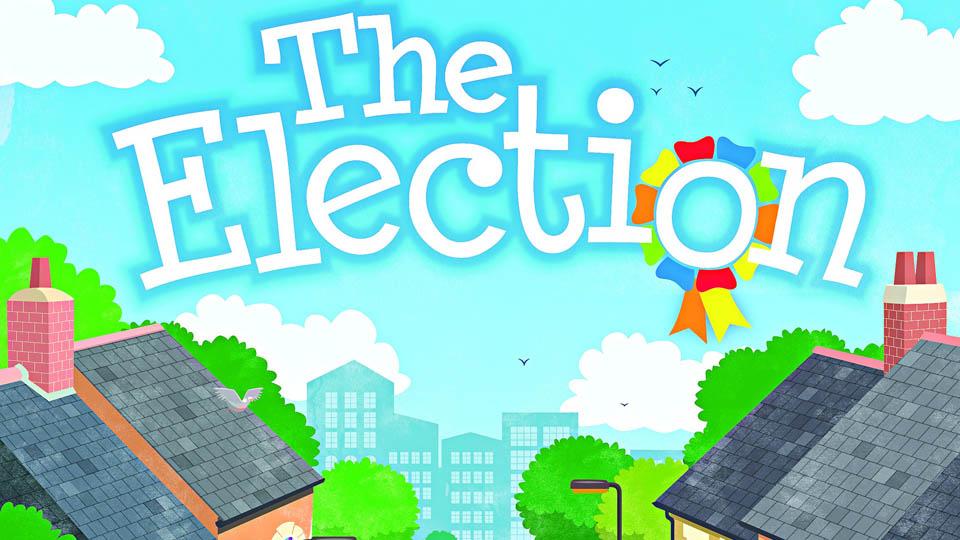#GE2015: Why we need to politicise our toddlers
Primary page content
Ellie Levenson, lecturer in the Department of Media and Communications and author of the children’s picture book, The Election, argues that it is vitally important to introduce children to politics early

One of my favourite pictures of my children is the two of them, aged one and a half and three and a half, holding up our polling cards outside a polling station sign. My husband and I had taken them with us when we cast our votes in the local and European elections.
We explained what we were doing and how it worked, and why we were voting the way we were. Although we cared deeply about the results – we met through our involvement in politics – the third of these was the least important.
People are still a bit squeamish about the idea of ‘politicising’ children. It tends to conjure up images of kids brandishing placards, serving their parents’ political agenda.
We wanted our children to understand what democracy means, what a vote is and why exercising it is important. We wanted to completely normalise political participation so that our children do not grow up as non-voters.
Our children's lives are political every day
From the moment our children are conceived their lives are influenced by politics. In the womb and during labour, every time I saw a midwife, and now, every time my children have an appointment with a doctor or receive a free prescription - they were and are benefiting from political decisions.
They have had nursery provision paid for first by the childcare vouchers we saved and then by the government’s free provision. They've been to free sessions at children’s centres. As they approach school age, we are applying for six local state primaries varying from ‘good’ to ‘requires improvement’.
Their lives are political every day, and that’s before we even start thinking about the food they eat, the house they live in and the passports they own.
Contrary to the popular belief that politicians and the rest of us are locked in an ‘us versus them’ battle, that we're a different breed, I think it's incredibly important for children to realise that politicians should represent us.
Our representatives should come from all classes, races, sexualities, genders and ages. We need to show children, from very early on, that politics isn't just something ‘other people do’ – it’s our lives.
Ellie Levenson is the author of The Election, a picture book about democracy for children aged 3-7, published by Fisherton Press